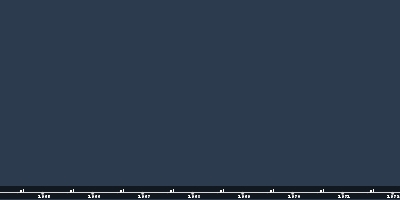1 gen 1975 anni - Vietnam reunified under communist rule
Descrizione:
To accompany his pursuit of détente, Nixon shifted American military tactics. In April 1972, in an attempt to strengthen his negotiating position, the president ordered large-scale bombing raids against North Vietnam. A month later, he approved laying explosive mines in North Vietnamese ports, something Johnson had never dared to do. Neither tactic worked: supplies from China and the Soviet Union still flowed in, and the communists fought on.With the 1972 presidential election approaching, Nixon sent Kissinger back to the Paris peace talks, which had broken off in 1971. In a key concession, Kissinger accepted the presence of North Vietnamese troops in South Vietnam. North Vietnam then agreed to an interim arrangement whereby the South Vietnamese government in Saigon would stay in power while a special commission arranged a final settlement. With Kissinger’s announcement that “peace is at hand,” Nixon got the electoral boost he wanted and won reelection. The agreement was then sabotaged by General Nguyen Van Thieu, the South Vietnamese president. In response, Nixon, in an all-out bid to force an end to the war, unleashed the two-week “Christmas bombing” of the cities of Hanoi and Haiphong, the most intense of the entire war. Historians disagree over the bombing’s impact on negotiations, but on January 27, 1973, the two sides signed the Paris Peace Accords.
Nixon hoped that South Vietnam’s Thieu regime might survive, propped up by massive American aid. But Congress was in revolt against the war and cut back aid to South Vietnam. In March 1975, North Vietnamese forces launched a final offensive, and by the end of April, Vietnam was finally reunited. That outcome was a powerful, and tragic, historical irony. The American involvement in Vietnam had begun in 1954, with Eisenhower sending money and advisors to South Vietnam just as the Diem regime refused to honor the unification vote mandated in the Geneva Accords. Two decades later, the outcome was essentially what that unification vote would have produced. In other words, America’s most disastrous military venture had not mattered. It had not changed the geopolitical outcome in Vietnam. However, although the Hanoi regime called itself communist, it refused to be a satellite of any country, least of all China, Vietnam’s ancient enemy.
The price paid for the Vietnam War was steep. Those Vietnamese who had sided with the Americans lost jobs and property, spent years in “reeducation” camps, or fled the country. Millions of Vietnamese had died in the war, which included some of the heaviest aerial bombing of the twentieth century. In bordering Cambodia, the maniacal Khmer Rouge, followers of Cambodia’s ruling Communist Party, took power and murdered 1.7 million people in bloody purges. More than 58,000 Americans had given their lives in Vietnam, and 300,000 had been wounded. On top of the war’s $150 billion price tag, it inflicted internal wounds on the country; Americans were increasingly divided, with less confidence in their political leaders.
Aggiunto al nastro di tempo:
Data:
1 gen 1975 anni
Adesso
~ 50 years ago
